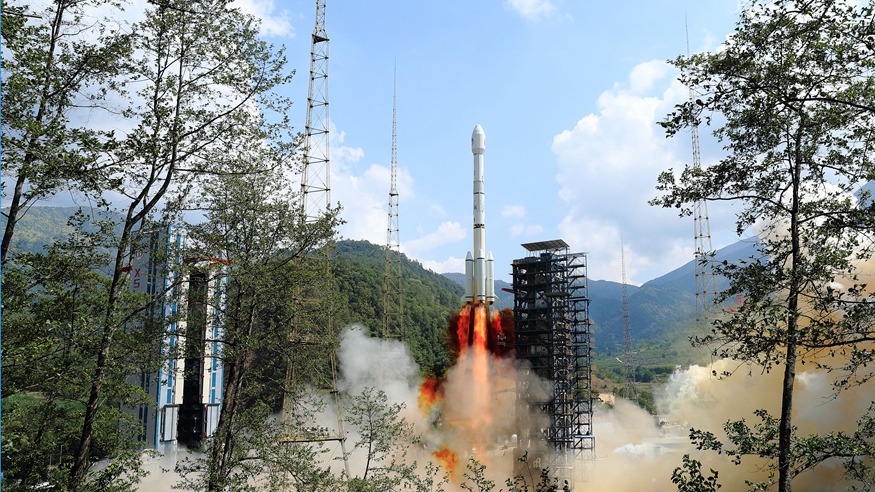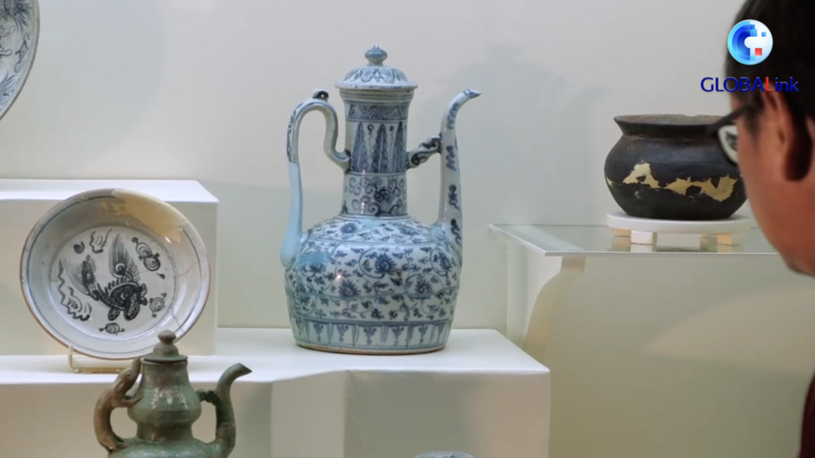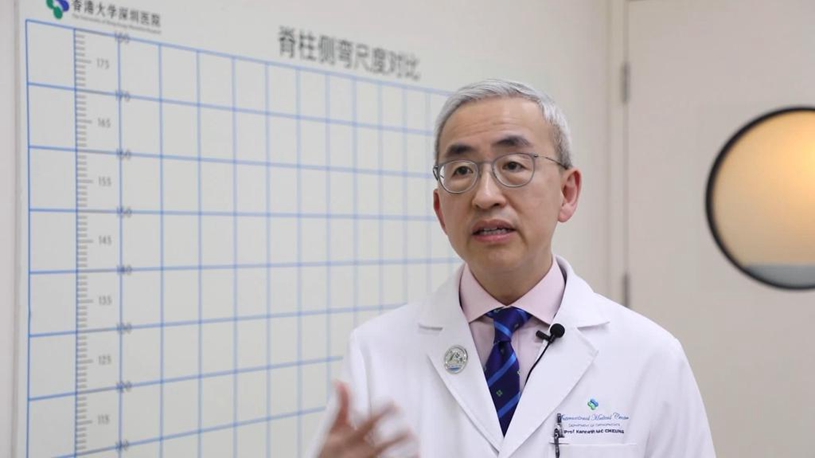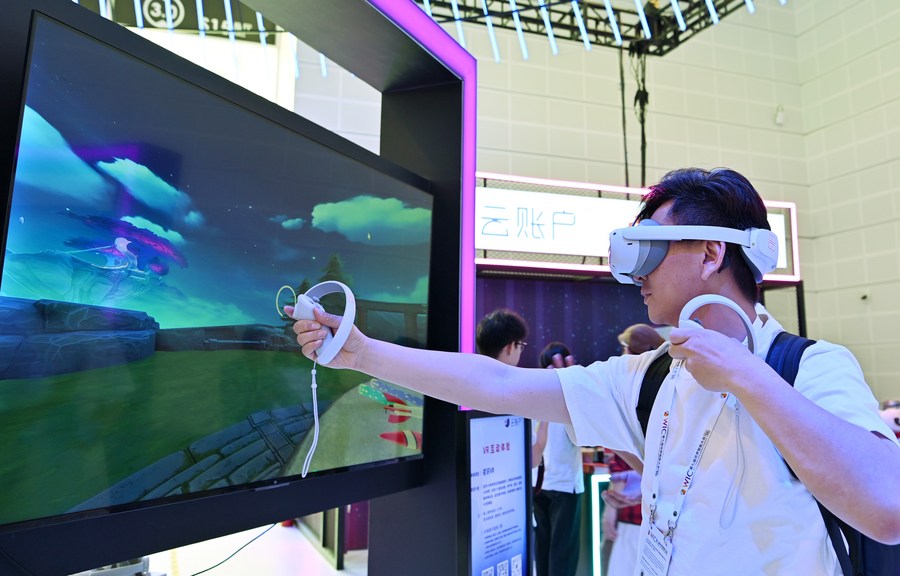
People visit an intelligent technology exhibition during the seventh World Intelligence Congress (WIC) in north China's Tianjin, May 18, 2023. (Xinhua/Li Ran)
"China today has the most advanced laboratories in the world for technology development and almost infinite number of highly qualified people in the area of batteries, so we are able to transform the ideas in a very fast way into a product and validate this product with final clients," said Rogerio Ribas, head of battery products of Brazilian Metallurgy and Mining Company (CBMM), in a recent interview with Xinhua.
ARAXA, Brazil, May 19 (Xinhua) -- "Chinese speed" is greatly facilitating fruitful China-Brazil cooperation in new and advanced materials, Brazilian experts and businessmen say.
"China today has the most advanced laboratories in the world for technology development and almost infinite number of highly qualified people in the area of batteries, so we are able to transform the ideas in a very fast way into a product and validate this product with final clients," said Rogerio Ribas, head of battery products of Brazilian Metallurgy and Mining Company (CBMM), in a recent interview with Xinhua.
The CBMM, headquartered in the city of Araxa, the Minas Gerais state, is a global leading supplier of niobium products and technology that are applied in a number of industries, including infrastructure, transport, aerospace, health and energy.
Niobium is a chemical element that is used in alloys including stainless steel. Through various applications, niobium makes the materials more resistant, durable, safer, lighter and less corrosive.
For decades, niobium products have been mainly applied in the steel industry. In China, the CBMM helped establish a welding center to research and develop the welding technology for China's steel industry.
"We have a lot of projects in China not only with the steel industry, but also with the end users, in order to provide value to the whole chain," said Marcelo Scuccuglia, commercial director of the CBMM.
In the past few years, the CBMM started business initiatives in the battery sector, in which it develops niobium products and applications in lithium batteries, in order to increase electronic conductivity, operating voltages, chemical stability, energy density, safety, ionic activity, and to lower operating temperature and reduce the time for charging.
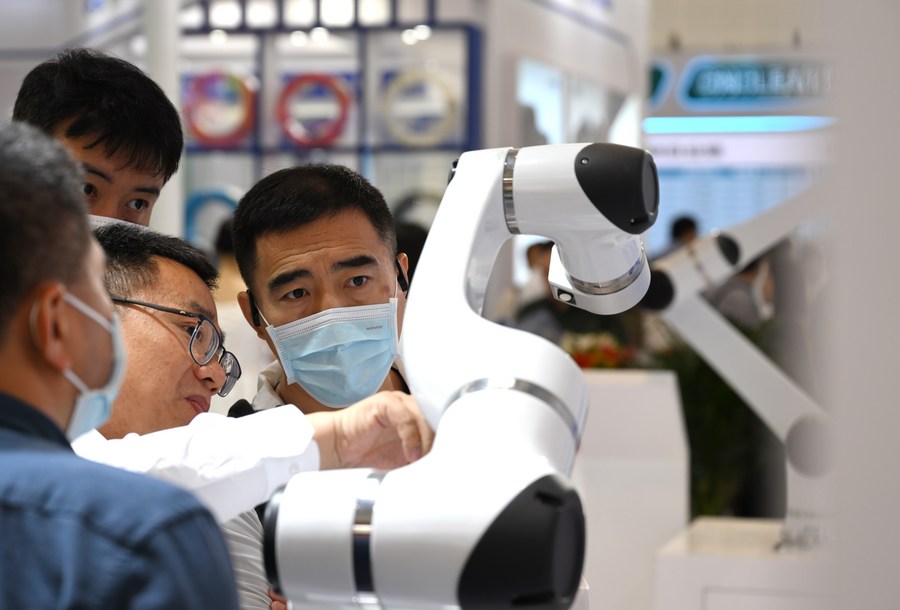
People visit an intelligent technology exhibition during the seventh World Intelligence Congress (WIC) in north China's Tianjin, May 18, 2023.(Xinhua/Zhao Zishuo)
"We have several projects in China that partner with Chinese cathode and anode producers, battery manufacturers, universities, R&D centers in terms of niobium technologies for lithium batteries," said Ribas.
He applauded the "Chinese speed" that transforms a business idea into a commercial reality, and attributed the successful bilateral cooperation to quality infrastructure for R&D access as well as China's clear development goal of electrification.
"It has built an atmosphere that greatly facilitates technological development related to electrification in China," said Ribas.
Tiago Amaral, manager of environment and technological support of the CBMM, believed that China's economic development has helped "all the industries and the whole market" as it "opens doors for new technologies to be adopted."
Amaral used to travel frequently from Brazil to China for technological support. He echoed Ribas in terms of the "Chinese speed" that "adopts new technologies in a very innovative and quick way."
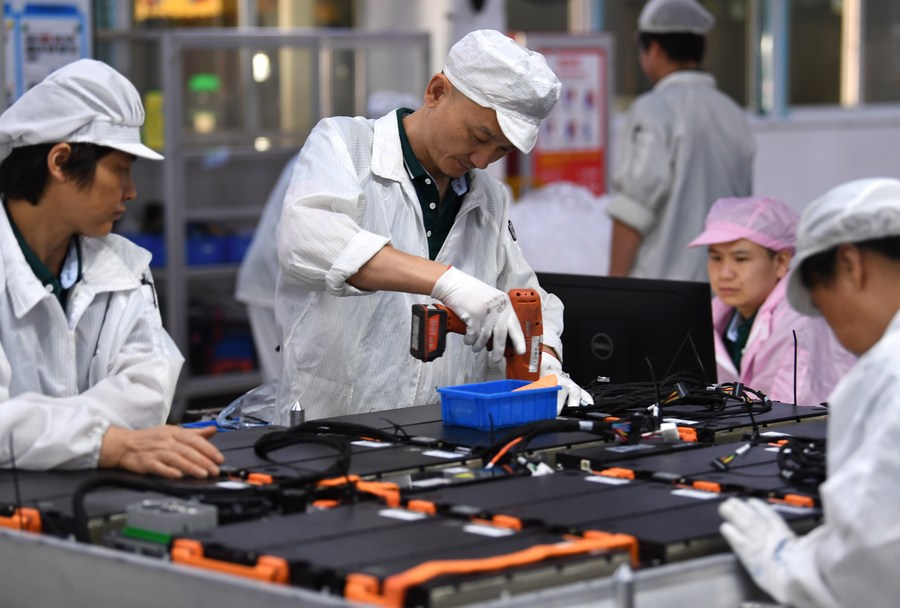
Workers work on a power battery production line at a workshop of a battery production company in Hefei Economic and Technological Development Area in Hefei, east China's Anhui Province, July 29, 2022. (Xinhua/Liu Junxi)
He considered it "fundamental" for the CBMM to have partners in China that adopt "the technology and the best practice" with them and are open to listening and jointly develop the partnerships.
Currently, around 90 percent of the CBMM's business revenue generates from its niobium products in the steel industry, and the Brazilian company has decided to shift more attention to non-steel sectors, such as battery and high-performance applications.
Amaral pointed out that China is the world's major steel producer and consumer, and that the niobium technology fits very well in this aspect as well as the new trend of electric vehicles.
"All these applications will complement each other in order to bring a better result for both countries," he said.■


